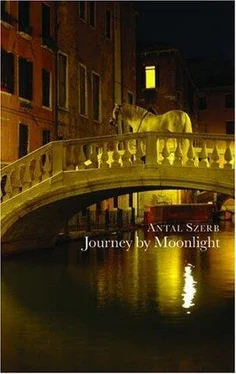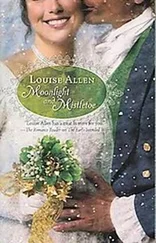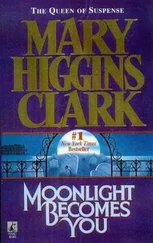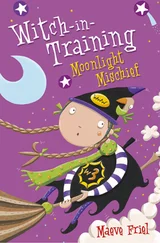First of all, the financial considerations. Mihály had an extreme respect for ‘economic necessity.’ Perhaps precisely because he had so little talent for it. If someone said to him, “material considerations compel you to this or that course of action,” he would immediately fall silent, and see the justification for every form of baseness. For just that reason, this aspect of the matter made him particularly uneasy. It had arisen as an issue long before the present, but Erzsi had always treated it as a joke. From a materialistic point of view she had made a very poor choice in him. Previously married to a man of substance, now the wife of a modest bourgeois — this sooner or later was bound to make itself felt, as the cool-headed and worldly Zoltán Pataki had already seen so clearly.
There rushed into his mind a host of details which, even on their honeymoon, had sharply exposed the difference in their living standards. One needed to look no further than the hotel where they were staying. Having discovered in Venice and Ravenna that Erzsi’s Italian was so much better than his own, and that she dealt so much more competently with hotel staff, of whom he had a particular horror, Mihály had in Florence delegated the hotel and all other practical considerations to her. Whereupon Erzsi, without further ado, had taken a room overlooking the river, in an old but extremely expensive little hotel, on the grounds that if one is in Florence one simply must lodge on the banks of the Arno. The cost of the room, Mihály felt vaguely, because he was too lazy to work it out, was generally out of scale with the amount they had set aside for their Italian accommodation. It was much more expensive than their room in Venice, and that for a moment had shocked his habitual thriftiness. But then he had driven the mean thought from him in disgust, telling himself, “after all, we’re on our honeymoon,” and thinking no more about it. Now, having read Pataki’s letter, it rose before him as a sign.
But the greatest problem was not financial but moral. When after six months of agonised deliberation he had finally decided to detach Erzsi, with whom he had been having an affair for a full year, from her husband, and take her as his wife, he had taken that momentous step in order to ‘atone for everything’, and indeed, through a serious marriage, to enter at last into man’s estate and become a serious person on the same level as, for example, Zoltán Pataki. So he had pledged to try with all his might to be a good husband. He wanted to make Erzsi forget what a fine spouse she had left on his account, and in particular he wanted to ‘make amends’ retrospectively for his adolescence. Pataki’s letter had now shown him the hopelessness of this undertaking. He could never become as good a husband as this man, who could look after a wife, so unfaithful and now so distant, with more care and skill than he, who was actually with her, but so unused to the role of protector that he had already had to load her with the responsibility of their hotel and other practical arrangements on that most transparent of pretexts, that she spoke better Italian.
“Perhaps it’s true what Pataki says,” he thought. “I am so abstracted and introverted by nature. Of course that’s a simplification — no-one can ever be so neatly categorised — but this much is certain, that I am singularly useless and incompetent in all practical matters, and generally not the man in whose calm superiority a woman can trust. And Erzsi is precisely the sort of woman who loves to entrust herself to someone, who likes to know that she belongs completely to someone. She isn’t one of those motherly types (perhaps that’s why she has no children) but one of those who really want to be their lover’s child. My God, how deceived she is going to be in me, sooner or later. I could more easily become a Major-General than play the role of father. That’s one human quality I completely lack, amongst others. I can’t bear it when people depend on me, not even servants. That’s why I did everything on my own, as a boy. I hate responsibility and I always come to despise people who expect things from me.
“The whole thing’s crazy: crazy from Erzsi’s point of view. She would have been better off with ninety-nine men out of a hundred than she is with me. Any average, normal fellow would have made a better husband than me. Now I can see it not from my own point of view, but purely from hers. Why didn’t I think of all this before I got married? Or rather: why didn’t Erzsi, who is so wise, think it through more carefully?”
But of course Erzsi couldn’t have thought it through, because she was in love with Mihály, and, when it came to him, was not wise, had not recognised his shortcomings, and still, it seems, did not recognise them. It was just a game of feelings. Erzsi with raw, uninhibited appetite was seeking the happiness in love she had never found with Pataki. But perhaps once she had had her fill, because such passionate feeling does not usually last very long …
By the time he got back to the hotel, after a long rambling walk, it seemed inevitable to him that she would, one day, leave him, and do so after horrible crises and sufferings, after squalid affairs with other men, her name ‘dragged through the mud’, as the saying goes. To a certain extent he took comfort in the inevitable, and when they sat down to dinner he could already, a little, look upon her as a lovely fragment of his past, and he was filled with solemn emotion. Past and present always played special games inside Mihály, lending each other colour and flavour. He loved to relocate himself in his past, at one precise point, and from that perspective re-assemble his present life: for example, “What would I have made of Florence if I had come here at sixteen?” and this reordering would always give the present moment a richer charge of feeling. But it could also be done the other way round, converting the present into a past: “What fine memories will I have, ten years from now, of once having been in Florence with Erzsi … what will such memories hold, what associations of feeling, which I cannot guess at at this moment?”
This sense of occasion he expressed by ordering a huge festive meal and calling for the most expensive wine. Erzsi knew Mihály. She knew that the fine meal signified a special mood, and she did her best to rise to the occasion. She skilfully directed the conversation, putting one or two questions bearing on the history of Florence, prodding him to think about such matters, because she knew that historical associations, together with wine, drew him out of his solemnity, and were in fact the only thing that could overcome his apathy. Mihály poured out enthusiastic, colourful, factually unreliable explanations, then with shining eyes tried to analyse the meaning for him, the wonder, the ecstasy of the mere word: Tuscany. “Because there is no part of this land that hasn’t been trodden by the armies of history. The Caesars, the gorgeously apparelled troops of the French kings, all passed this way. Here every pathway leads to some important site and one street in Florence holds more history than seven counties back home.”
Erzsi listened with delight. The actual history of Tuscany did not for one minute interest her, but she adored him when he came alive like this. She loved the way that at these moments, in his historical day-dreams, precisely when he reached the furthest point from actual living people and the present world, his remoteness left him and he became a normal person. Her sympathy soon merged with more powerful feelings, and she thought with pleasure of the expected sequel later that night, all the more because the night before he had been in a bad mood, and fell asleep, or pretended to, the moment he lay down.
She knew that Mihály’s exalted mood could easily be diverted from history towards herself. It was enough to put her hand in his and gaze deep into his eyes. He forgot Tuscany, and his face, flushed as it was with wine, grew pale with sudden desire. Then he began to woo and flatter her, as if trying to win her love for the very first time.
Читать дальше












